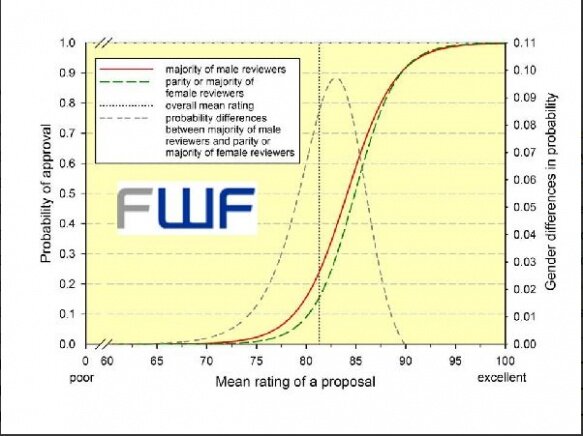Does gender matter in grant peer review? An empirical investigation using the example of the Austrian science fund
Mutz, Rüdiger; Bornmann, Lutz; Daniel, Hans-Dieter
Zeitschrift für Psychologie/Journal of Psychology, Vol 220(2), 2012
Abstract
One of the most frequently voiced criticisms of the peer review process is gender bias. In this study we evaluated the grant peer review process (external reviewers’ ratings, and board of trustees’ final decision: approval or no approval for funding) at the Austrian Science Fund with respect to gender. The data consisted of 8,496 research proposals (census) across all disciplines from 1999 to 2009, which were rated on a scale from 1 to 100 (poor to excellent) by 18,357 external reviewers in 23,977 reviews. In line with the current state of research, we found that the final decision was not associated with applicant’s gender or with any correspondence between gender of applicants and reviewers. However, the decisions on the grant applications showed a robust female reviewer salience effect. The approval probability decreases (up to 10%), when there is parity or a majority of women in the group of reviewers. Our results confirm an overall gender null hypothesis for the peer review process of men’s and women’s grant applications in contrast to claims that women’s grants are systematically downrated.
©2013 American Psychological Association
Read Full Article







